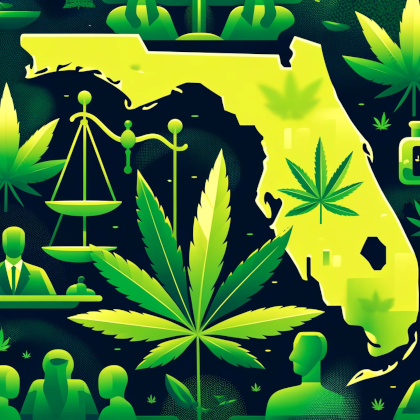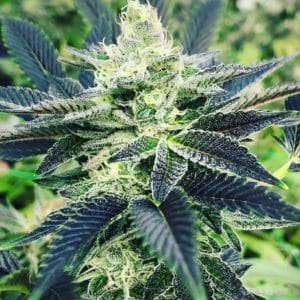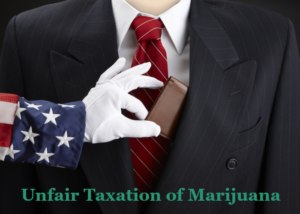
The Green Debate: Recreational Marijuana Legalization in Florida
On April 1, 2024, in a landmark decision, the Florida Supreme Court approved the inclusion of the recreational marijuana legalization initiative on the upcoming November ballot. If passed, the Sunshine State would join the ranks of 24 other states where recreational marijuana is legal.
Currently, Florida allows marijuana for medical use only, but the new amendment would expand the availability of non-medical cannabis for individuals aged 21 and older.
The measure, labeled Amendment 3, strives to legalize the “non-medical personal use of marijuana products and marijuana accessories by adults” aged 21 or over, pending approval from at least 60% of voters statewide. It is set to become effective six months after the vote (if passed).
Push for Rec Marijuana in FL
In a previous attempt in 2021, the court turned down two similar constitutional amendments regarding recreational marijuana. However, the latest attempt surprisingly passed, with five justices supporting the measure and only two against it.
The campaign backing the amendment, led by Smart & Safe Florida, has been a strong influence. It has raised over $40 million in recent years, mostly coming from Trulieve.
Already, recreational marijuana has been legalized in two dozen other states and many view Florida as the next state on the long list of successes.
If passed, the Florida amendment would permit the possession of up to 3 ounces of non-medical marijuana and no more than 5 grams in a concentrated form by adults 21 and older.
Florida’s Attorney General, Ashley Moody, has expressed opposition to the recreational marijuana ballot measure, criticizing it for failing to meet the necessary standards and claiming it is misleading.
Moody also argued that the measure disproportionately benefits Trulieve, the largest medical marijuana provider in Florida, which has been a major financial supporter of the Smart & Safe Florida campaign.
Following the court’s approval of the measure, Trulieve CEO Kim Rivers issued a statement, expressing enthusiasm for the campaign’s progression to the November ballot.
Poll Shows Lack of Support
Although many believe that the majority of Florida voters support the legalization of recreational marijuana on the November ballot, there still might be problems ahead. A recent poll carried out by USA Today/Ipsos has revealed that only 56 percent of registered Florida voters support the measure. Considering it requires 60 percent for passage, the recent poll does not bode well.
The poll results revealed strong political and regional variations in support, with 69 percent of Democrats, 63 percent of independents, and 39 percent of Republicans favoring the proposal.
Support was noted at 54 percent in central Florida, compared to 49 percent in the north and 38 percent in the south of the state.
Residents of Broward County or Palm Beach County were more supportive (47 percent) compared to those in Miami-Dade County (30 percent).
No significant differences were reported regarding voting intentions by gender or age, although white Floridians showed more support (55 percent) compared to Hispanic Floridians (32 percent). The poll, conducted from April 5-7, included 1,014 Florida adults and has a margin of error of +/-4.1 percentage points. In a state with over 22,000,000 people, a sampling that size may not accurately represent the population.

Support of Florida Recreational Marijuana
The cannabis industry throughout the state has rallied behind the passage of recreational marijuana, with nearly $15 million contributed to the campaign, including significant donations from Trulieve, which alone contributed $9.225 million in the first quarter.
Kim Rivers, CEO of Trulieve, expressed confidence in the passage of the initiative, saying, “The sky has not fallen” with the implementation of medical cannabis under an earlier initiative, and “folks see that choice is a good thing.” She optimistically added, “Hell yes,” when asked about achieving the necessary 60 percent voter approval.
Contrastingly, Governor Ron DeSantis has predicted voter rejection of the initiative, describing it as “radical.” He questioned the necessity of expanding beyond the existing medical cannabis program, suggesting that it might not yield positive results for communities or the state at large.
Problems With the FL Marijuana Initiative
Although many view the potential of legalized recreational marijuana as a step in the right direction, others point out problems with the initiative.
The proposed amendment would permit existing medical cannabis companies to sell marijuana to all adults over 21 but does not mandate home cultivation. However, it also lacks provisions for expungements or other reliefs for people with prior cannabis convictions.
Pros of Recreational Marijuana Legalization
One of the main economic benefits that both sides acknowledge is the boost in state revenue, with projections estimating an increase in annual sales tax revenue. Economists from the Florida legislature and the governor’s office estimate that the initiative could generate between $195.6 million and $431.3 million in annual sales tax revenue, potentially increasing if an excise tax similar to those in other legalized states is implemented.
The legalization of marijuana will help curtail the black market. It will also provide state residents with access to safe, tested products that are sold by a reputable dispensary.
Cons of Recreational Marijuana Legalization
Critics like Governor DeSantis argue that widespread recreational use could lead to increased health risks, particularly among young adults and in terms of mental health impacts.
Many voters are concerned about the social implications of recreational marijuana. They point to an increased exposure of marijuana to children and the potential for increased addiction rates.
One of the main cons that even supporters of Florida recreational marijuana have shown concerns about is that the amendment primarily benefits existing medical marijuana companies. As it stands, only the big growers and dispensaries will benefit. There will be very few potential economic opportunities for new entrants.
The debate over recreational marijuana legalization will rage until November. As Florida voters approach the ballot, they face a decision that balances potential economic benefits and regulatory control against concerns of public health and social impact.








